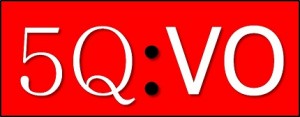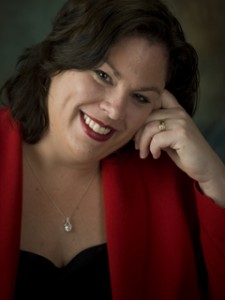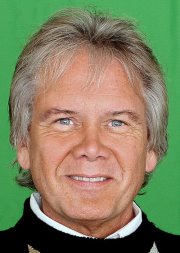Share


Today’s 5 Questions for a Professional Voice Over Talent are answered by Todd Schick, a professional voice-over talent based in Toronto, Ontario, Canada .
1. The beginning: When did you know you wanted to be a voiceover talent; how did your career begin (please include what year it started) and then when did your passion for voiceover develop into something professional?
I would say that my professional career started when I got into radio in 1984 – my brother inspired me to get into radio broadcasting; he had a few years behind the mic at that time. It’s funny, but I really didn’t “know” I want to be a pro VO talent, but I was keenly aware that every radio station I worked at, I always got the lion’s share of commercial work.
I didn’t have a “passion” for doing VO – I was simply good at it – it was part of my job.
About a year before I left radio (1996 or so) I recall saying to a producer I worked with daily that “Guys in Toronto are getting paid $750 for a local spot, you know…..” In fact, I said this so many times, he got pissed off and told me to shut up and read the spot. I remember getting hot under the ears after that and I think that ultimately led me down the path to VO.
The only thing positive I took from radio was the experience – everything else was horrible. Lousy money, horrible hours and tons of stress led me to the point of a nervous breakdown. When I left for good in 1997, I recall saying to myself that I’d be happy mowing lawns if that were my fate.
Things came full circle when I ended up back with my brother at his house in Oakville outside of Toronto, literally stranded there after being dumped by Girlfriend From Hell back in Ottawa. I was a mess. He lent me his vintage 1966 Mustang to get around (in winter, no less). His only advice to me at the time:
“Make the choice to be happy.”
I had to start all over with less than nothing, I was carrying debt. So, I decided I’d try to do freelance VO. It was a tall order. I had a buddy in Toronto I knew for years say…….”So, you’re going to do VO…..fulltime?” I’m sure he thought I was smoking something…lol.
2. What is the one thing you know now that you wish someone had told you when you first started out in voiceover?
There’s a few technical tricks I’ve learned over the years I would have liked to have known at the start, but really, I would have done a much better job of protecting my intellectual property.
When I started my web presence in 1998 there were about 30 guys (no gals) on Yahoo! with a website up. Most, if not all of them, were tantamount to a flashy business card. No one was sharing information on the trade…..primarily because it was so new (running a home studio and delivering audio via the internet). Everyone held their cards pretty close to their chest for fear of losing….whatever.
I knew all along that – in respect to VO – one can have all the information on the subject in the world, but if they don’t have talent for the work, they won’t succeed. Kinda like someone reading about playing the guitar….but never having the skills to play it.
So, I chose to share information from the start. Gave it away for nothing. I figured that if it worked for Microsoft, it would work for me….and it did. I was bombarded by so many questions from both clients and talent that I kept writing content for my site and pointed everyone to look at toddschick.com. My site grew by about 3-4 pages a week at the start. It’s at about 160 pages now and enjoys fantastic rankings.
What I didn’t expect, was how badly I got plagiarized and ripped off….again, much like Microsoft. Audio from my demos started showing up on other people’s demos – SFX and transitions. I had a guy from Calgary send me a note asking if I’d link to his site. I went to have a look, only to discover that he had “copied and pasted” my index page……verbatim. He didn’t even try to change the wording! It was my thinking that he had hired someone to compose his site, they found me at the top of Yahoo! and ripped off my content.
The worst culprit was the P2P sites. They stole everything, right down to my color scheme (guess which one). The now widely used Custom Audition, rates, delivery method(s), how to categorize and structure demos….everything. They ripped it off, because they (like the guy in Calgary) had nothing else to go on – my site was – literally – “The Bible” in respect to the subject (business model) of home-studio based VO talent recording and delivering audio via the internet.
I guess the only other thing I wish I knew beforehand was just how much of a waste of time P2P sites would be. Had I spent more time working my existing client base and less time auditioning via P2P sites, I’d be better off. Hours and hours of my time I’ll never get back. I wrote extensively on the subject here: http://www.toddschick.com/VoiceTalentFAQVoice123.htm
3. What do you see as the biggest professional or personal obstacle you face that impacts your voiceover business and how are you working to overcome it?
Without question P2P sites. Here, we have websites selling people the “dream” of becoming a VO talent. A person can wake up one morning, decide they want to get into VO – someone told them they have a nice voice. So, they give a P2P site $300.00 and get all the validation they need to get their “career” underway.
P2P sites have de-valued the work to the point where people are reading commercial spots for $10……some even less. What have I done about it? Ha! I’ve been fighting the “good fight” ever since they appeared back in 2003 and still continue to this day. Don’t get me started…lol.
As for me personally, I don’t view P2P as an “obstacle.” My business is very healthy and continues to grow, despite the advent of P2P sites. That’s because true professionals in the industry (producers and other clients) know full well the difference between quality talent and the crap that’s rampant on P2P sites.
Indeed, if anything….P2P sites have served me well in that regard. Many of my new customers today come to me because they want quality and no longer wish to waste their time and money hiring talent off P2P sites.
The “obstacle” I see for the industry in general is P2P sites…and that is something that should scare the hell out of anyone getting started today. I fear for those people, because P2P sites are destroying the industry’s bottom line via their bidding-based business model – a very short-sighted approach. There’s simply too many people competing for a smaller and smaller slice of the pie.
4. What personal trait or professional tool has helped you succeed the most in your career so far?
I can’t name one, but many. Indeed, many people getting started in the business think that simply having a “nice voice” is all they need, when in fact – to be successful at VO – there are many factors involved.
I have entrepreneurial spirit; always prepared to fail. I have recording engineering experience, to play with the big boys who can tell the difference between me and buddy with a USB microphone. I have marketing skills from my radio days, along with business (sales) acumen. I have a trained and skilled voice that took 12 years of reading thousands of commercials and other content to hone. I live in a city where the VO market is huge. I have several agents, a staff to manage my business and schedule, contacts from my radio days that have helped me get imaging contracts….the list goes on.
5. In your development as a voice over performer, who has been the one particular individual or what has been the one piece of performance advice (maybe a key performance trick, etc.) that you felt has had the most impact on your actual voice over performance and why?
Forgive me for saying this, but that question I find somewhat offensive and a clear indicator of what’s wrong with the VO industry today. There is no “one thing” someone can teach someone else…and suddenly, the clouds clear, the sun comes out and the voice talent rises like a phoenix….lol.
What I learned, the skill I have today is the culmination of:
A) A god-given gift for reading anything aloud and
B) Decades upon decades of repetition, thousands and thousands of commercials, rolls and rolls of teletype paper when I read news, writing, producing and voicing radio documentaries….etc.
So tell me, do you have a “performance trick” you can teach me that’s going to work in lieu of the aforementioned? This….is what these P2P sites and VO coaches out there are telling people….that they can teach these “tricks” and make a voice talent out of someone, when nothing could be further than the truth.
I digress. On the subject of inspiration, I can mention three things:
One was my ninth grade English teacher Mrs. McNabb. She would do a reading exercise where the class would read from the same book and she would pick students at random to read a paragraph. Whenever she got to me, she’d only let me read a few sentences. One day after class, I went to her desk and asked her why she wouldn’t let me read more of the book. She said:
“Todd, you’re an excellent reader – very entertaining. The thing is, there’s other kids in the class that need the practice.”
The other person was a Program Director back in my radio days at 66CFR in Calgary. After about 6 years in radio I came to that station with a lot of experience reading spots – I had a killer commercial demo and the copy writers (and sales people) were licking their chops to get me in the booth to record.
The PD was a control freak and told me that she felt that I “wasn’t ready” to record spots for a market as big as Calgary.
Ever since then, I decided I will never let her – or anyone else – hold me back. Today, I voice everyday for a pretty big market – Canada – as the brand voice for the (national) Global Television Network.
The third and final inspiration is my theater experience. I was great at doing VO before I got into theater…..acting put my craft way over the top. Acting taught me skills I never knew I had…..again, not one person or one trick, but a cumulative experience.
Tags: 5 Questions for a Professional Voice Over Talent, 5Q:VO by peter k. o'connell, your friendly, neighborhood voice-over talent
Comments Off on 5 Questions for a Professional Voice-Over Talent – Todd Schick









